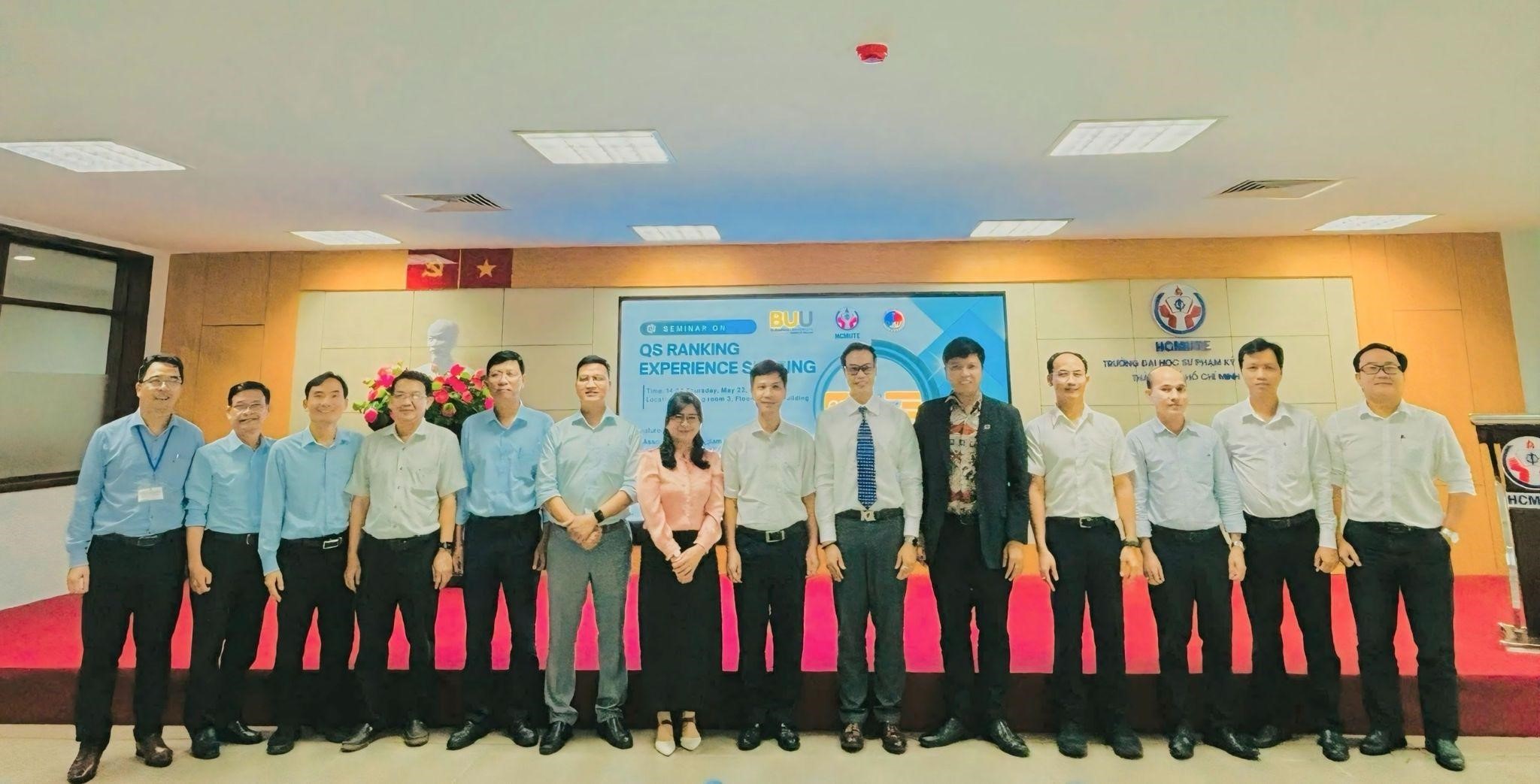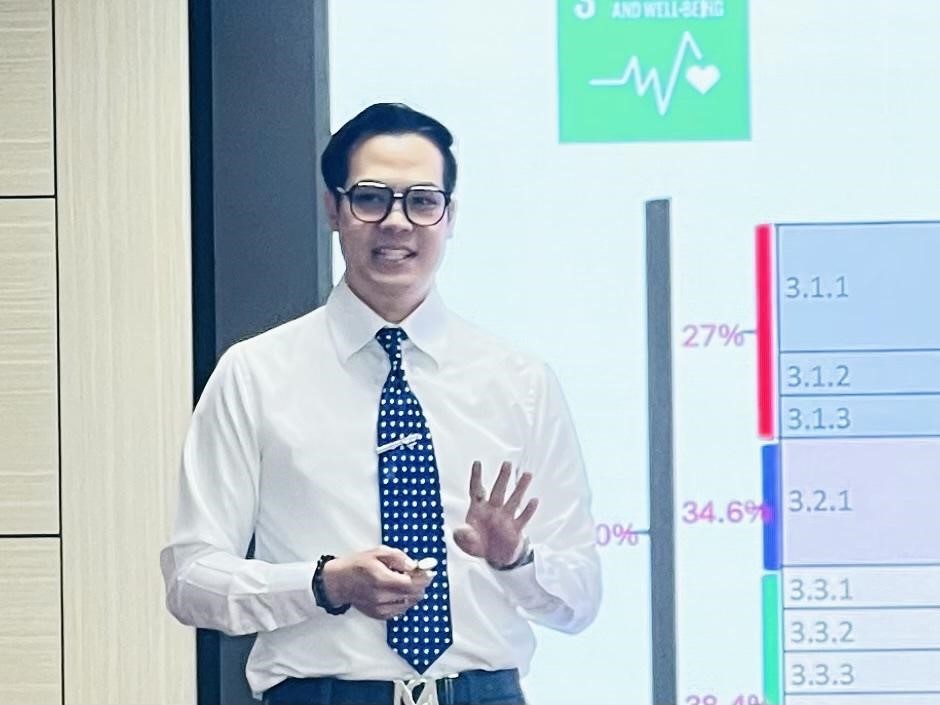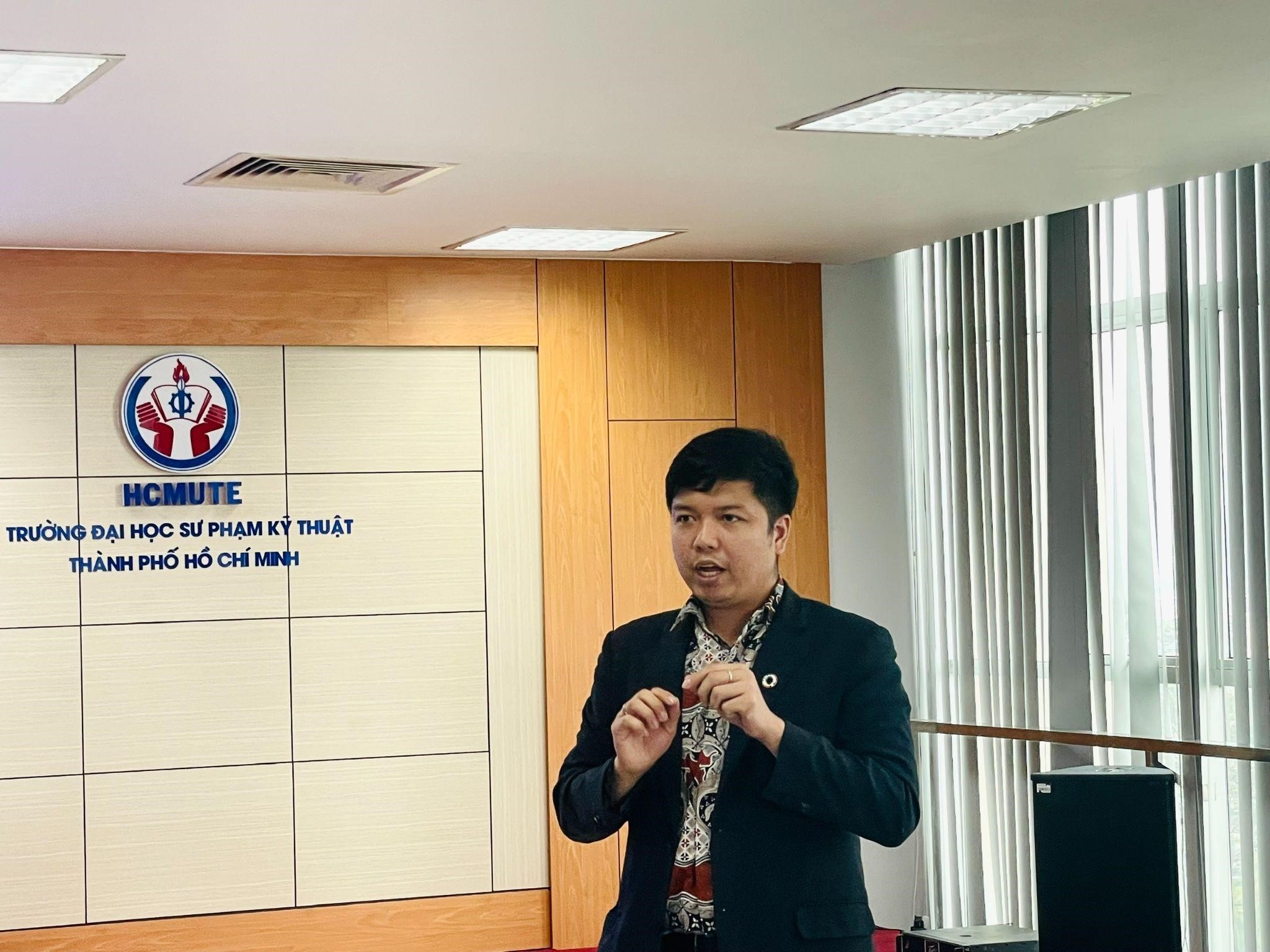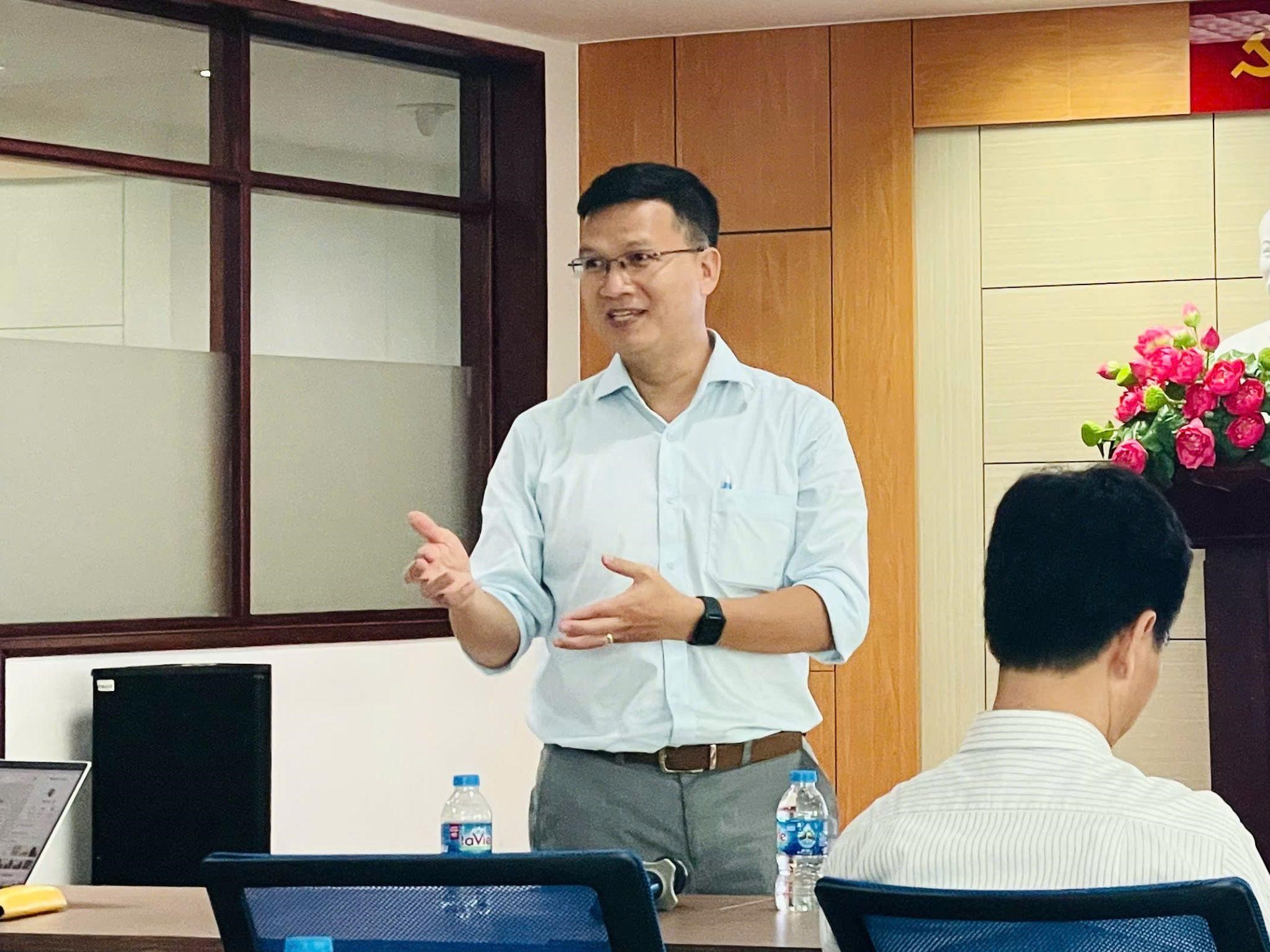On the afternoon of May 22, 2025, Ho Chi Minh City University of Technology and Education (HCMUTE) organized a workshop to share experiences on university rankings according to the QS Rankings. The aim was to raise awareness and provide strategic direction to improve the university’s international standing in the global education system. The event provided an opportunity for HCMUTE’s faculty and academic administrators to gain access to up-to-date, practical, and scientific insights from international experts regarding the factors influencing university rankings based on QS standards—one of the world’s most reputable and influential university ranking systems.
In attendance from HCMUTE were Assoc. Prof. Dr. Chau Dinh Thanh – Vice President of the University, along with representatives from the Departments of Testing & Quality Assurance, Science and Technology, Academic Affairs, Corporate Relations, as well as delegates from the Faculty of International Education, Electrical and Electronics Engineering, Mechanical Engineering, Automotive and Power Engineering, Chemical and Food Technology, and Civil Engineering.
Among the distinguished guests were Assoc. Prof. Dr. Jangiam Witawat – Chair of A-GRASS 2025, Dean of the Graduate School of Burapha University (Thailand), Executive Director of APCoRE, and Mr. Angelito Bautista, Director of the Research Center at Quezon City University, Philippines.

HCMUTE and guest representatives at the workshop
During the workshop, Assoc. Prof. Dr. Jangiam Witawat delivered insightful and practical perspectives on strategies for improving a university’s QS Rankings position. According to him, to achieve high rankings and sustainable development, universities must start by “knowing their strengths.” This involves identifying not only strong academic programs, but also research capabilities, faculty quality, international collaborations, and engagement with businesses and the local community.
He emphasized the importance of “choosing the right mission”—one that accurately reflects the institution’s current state, strategic orientation, and role within the broader education–research–innovation ecosystem. A clear mission helps the university prioritize investment in specific criteria, thereby optimizing ranking indicators such as academic reputation, international publications, faculty-to-student ratio, and global partnerships.
Lastly, he stressed the need to connect the university’s mission with local and global development goals. In the context of higher education internationalization, building research and training programs that meet local needs while actively contributing to the United Nations' 17 Sustainable Development Goals (SDGs) enhances the academic value and impact of university activities, positively influencing rankings.
Dr. Witawat also shared Burapha University's experiences in forming research networks with ASEAN universities, developing interdisciplinary graduate programs, and using big data tools to assess strategic effectiveness. He noted that success in international rankings does not come from chasing numbers but from a comprehensive strategic transformation backed by alignment across all university levels—from leadership to departments.

Assoc. Prof. Dr. Jangiam Witawat speaking at the workshop
Continuing the program, Mr. Angelito Bautista – Director of the Research Center at Quezon City University (Philippines) – provided a comprehensive analysis of HCMUTE’s current QS ranking data and offered strategic suggestions to enhance its international profile. He observed that HCMUTE has strong potential for global collaboration, especially in engineering and technology—fields highly valued in the QS ranking system. He also proposed several directions to help HCMUTE improve citation metrics and expand its international partnership network.

Mr. Angelito Bautista sharing insights at the workshop
Representing the organizing committee, Assoc. Prof. Dr. Pham Huy Tuan – Head of the Department of Testing & Quality Assurance – extended his deep gratitude to the international experts for their valuable insights, as well as to all participating faculty and administrators. He emphasized that the workshop discussions not only offered a comprehensive understanding of the QS ranking criteria but also laid a foundation for HCMUTE to craft effective development strategies. These strategies will contribute to improving training quality, scientific research, and global partnerships.

Assoc. Prof. Dr. Pham Huy Tuan speaking at the workshop
At the conclusion of the workshop, participants unanimously agreed that improving HCMUTE’s QS ranking is not an end goal, but part of a broader journey toward sustainable development—centered on educational and research excellence, while staying closely connected with societal needs and global trends. The workshop opened up new opportunities for academic collaboration and research exchange between HCMUTE and universities in the ASEAN region and beyond, marking a significant step forward in the university’s internationalization process and enhancing its reputation on th